F.A.Q.
Common questions about Reverse Auctions and how Procurex can help.
General
What is a reverse auction?
The reverse auction is simply another way (the best way) to get the best price from your qualified vendors. A reverse auction is a web-based sourcing event in which qualified vendors competitively bid to win your business, having already demonstrated themselves to be qualified on other deciding factors.
One way to think of reverse auctions is to picture ‘ebay in reverse’ where qualified suppliers bid their prices down versus up in a live virtual event that is typically completed within one hour.
Is it true that reverse auctions force competition on price-only?
No. Reverse Actions are actually just a step in a normal sourcing/procurement process. Just like a traditional RFP process, you define your requirements in different sections of sourcing document, you apply weights to different things such as service levels, location, MWBE, and Pricing.
Awards are often made to bidders other than the lowest price based on non-priced variables, however the reverse auction process works to drive the entire set of suppliers downward in their pricing, benefiting you as the buying entity.
Is it true that reverse auctions are only relevant for commodity items?
No. Reverse auctions can be used for a wide range of goods and services. A reverse auction with Procurex includes a process of normalizing the requirements for vendors – whether that be performance metrics of a supercomputer, or the service levels for waste hauling or guard services, we help you define a common set of non-price items on which vendors will compete.
The Vendor
Relationship
How do we get our vendors to participate?
We take care of that for you. Your organization can provide a preferred vendor list. Procurex can manage the outbound communication to inform vendors of a reverse auction event, educate them on the process and train them in the use of the reverse auction platform. Additionally, Procurex can solicit additional vendors for your review, approval in inclusion in the event.
Do reverse auctions have a negative impact on vendor relationships?
No. In fact, for most of your vendors, reverse auctions have become a fact of life. You are not forcing them to compete solely on price. You still evaluate them on various non-price factors, but you are ensuring that each vendor is giving you their best price. In fact, as long as vendors know that those non-price factors have been structured in such a way as to keep the playing field level, they appreciate the transparency of the transaction.
What do participating vendors see during the auction?
Vendors log in to Procurex and have a “Dashboard” just as Buyers do. Once a bidder places a bid in an auction, the “bid feedback” will immediately be shown. While each auction is different, bid feedback can include such things as the current lowest bid, the bidder’s current rank (with “1” as lowest), “lead/not lead”, “Reserve Price Met/Not Met”, or other feedback elements customizable for a given auction event. The identity of other bidders is not shown to a bidder. Procurex can also customize different auction setups and bid feedback to meet a given client’s needs.
The Auction
Process
How does the actual auction event take place?
Procurex will manage the vendor invitations, communication and training prior to the auction event. We host and manage the online event itself, providing real time monitoring and support to your organization and participating vendors.
Unlike eBay™ or a electronic quoting tool, reverse auction events are virtual and ‘live’ and generally run across a 1 hour period.
How long does the auction last?
The auction duration ranges from a few minutes to a couple of hours. The length is determined by the nature of the goods being auctioned. Events for commodity items can be completed in a few minutes. More complex items or sets of items can require more time as vendors sharpen their pencils behind the scenes.
How can I watch the auction?
You view the auction online by logging into our secure reverse auction environment. As a buyer, you can see each vendor, their current submission, and watch as successive bids are submitted.
If we do a reverse auction, is my organization required to accept the lowest bid?
No, the buying entity would evaluate the online bids against their own criteria for value, price and vendor qualifications – just as they would in a normal RFP process.
Once we conduct a reverse auction, are we required to make an award?
No, if you are not satisfied with the bids – for price or other reasons, you are free to reject the results of the auction.
It is key however that vendors view the reverse auction as a contracting event and not just a price ‘fishing’ exercise. This ensures that they provide their best pricing in this exercise, as they know that a contract award hangs in the balance.
Costs &
Savings
How much does the service cost?
Typically, the service costs are built into the pricing that Procurex generates via our reverse auction platform in a ‘supplier pay’ model. The winning supplier pays a small fee (built into their pricing) that covers the cost of the event, and you would never see an invoice from Procurex for this service. There is never any cost for suppliers to register and participate in a reverse auction event. Procurex can also customize a pricing model that works best for you, including a per event fee model, annual seat licensing or multiple event packages.
How much money can my organization save?
Our customers save on average 14% – 28% on an auction, but the specific amounts can vary greatly.
Still need have questions?
Send us a note!
Email or call us at 866.412.7161
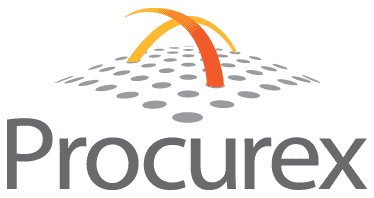
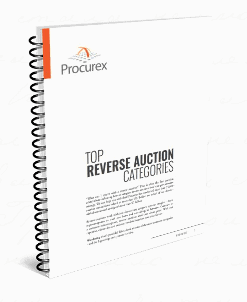
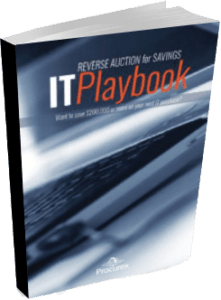
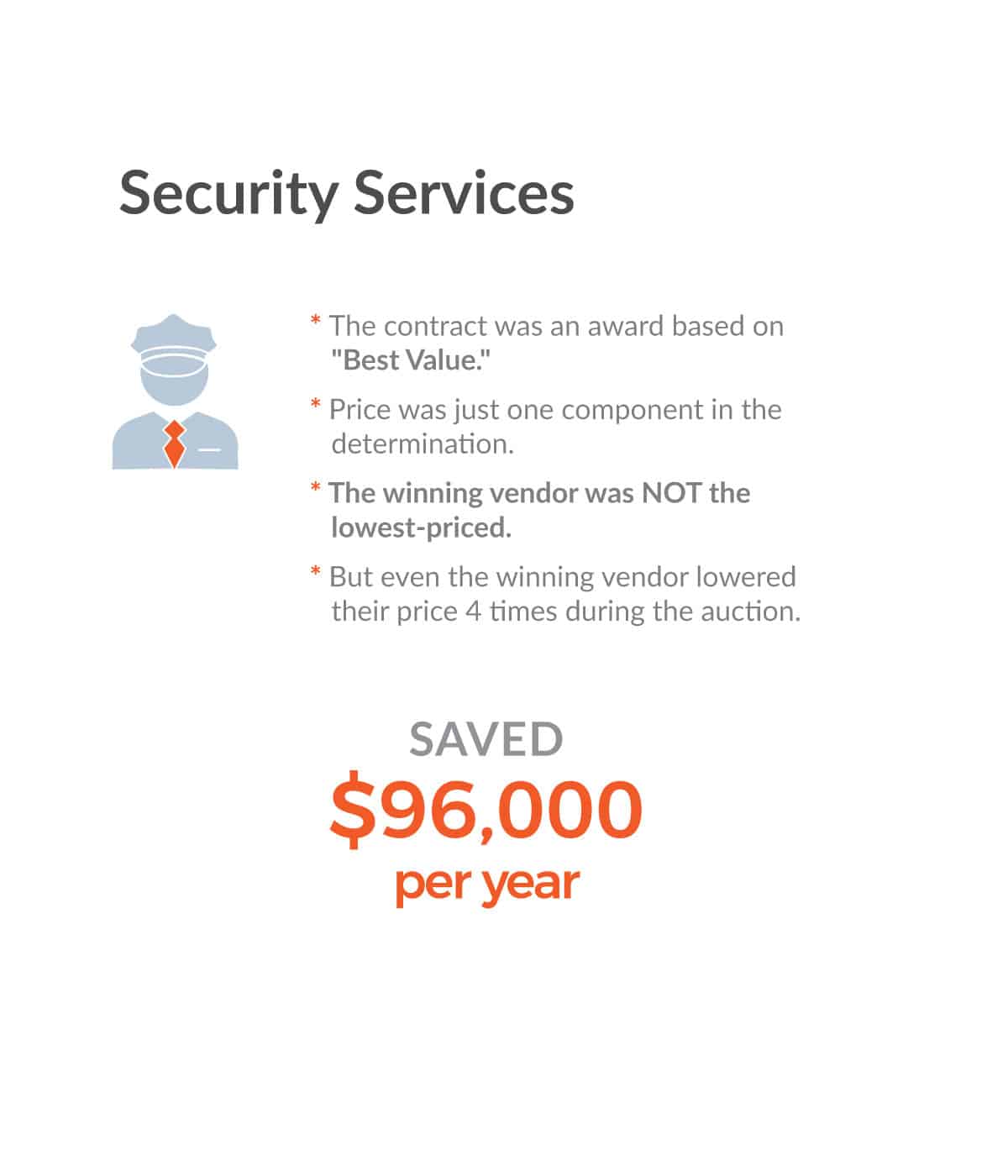
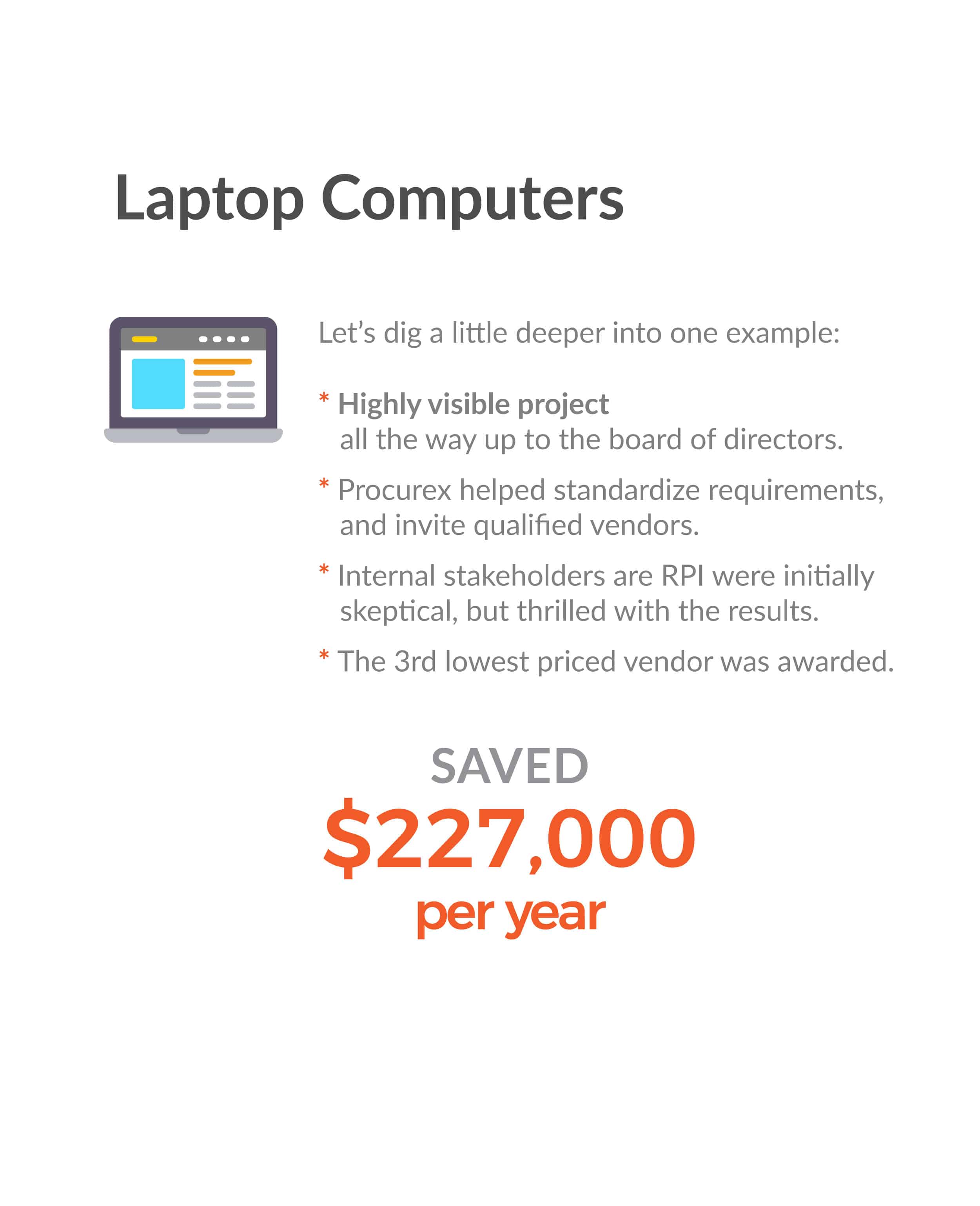
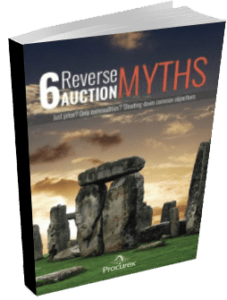
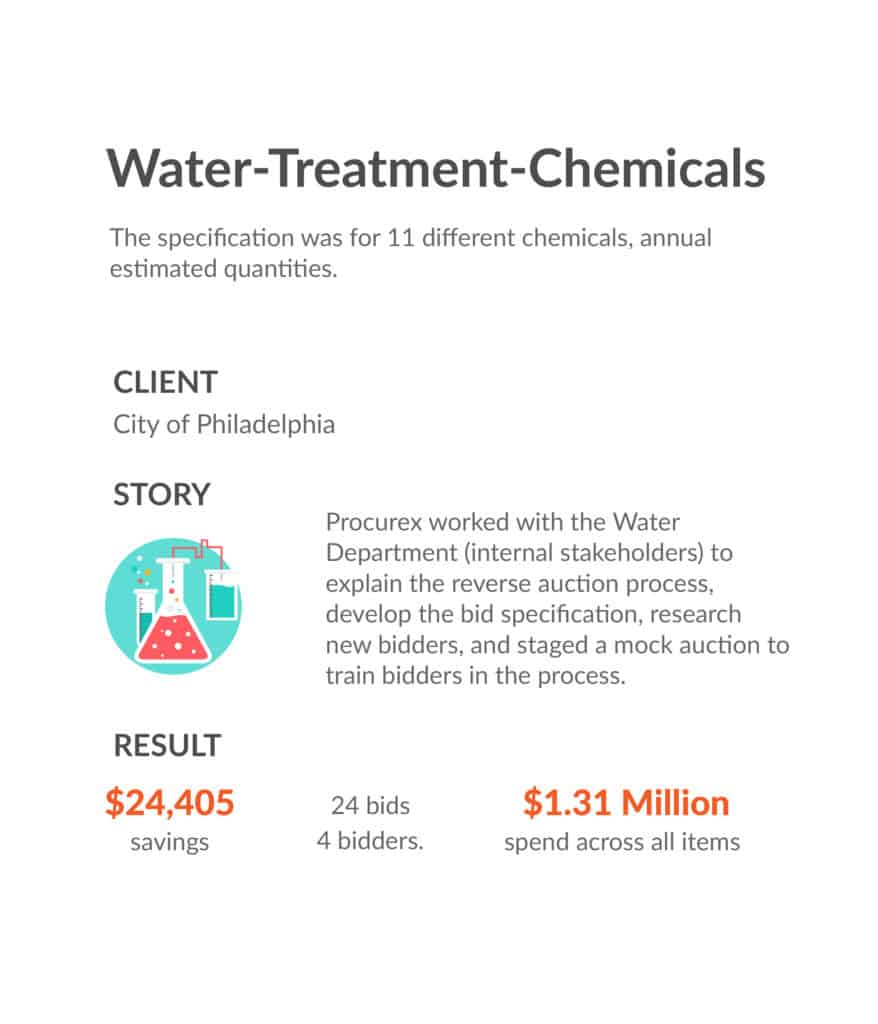
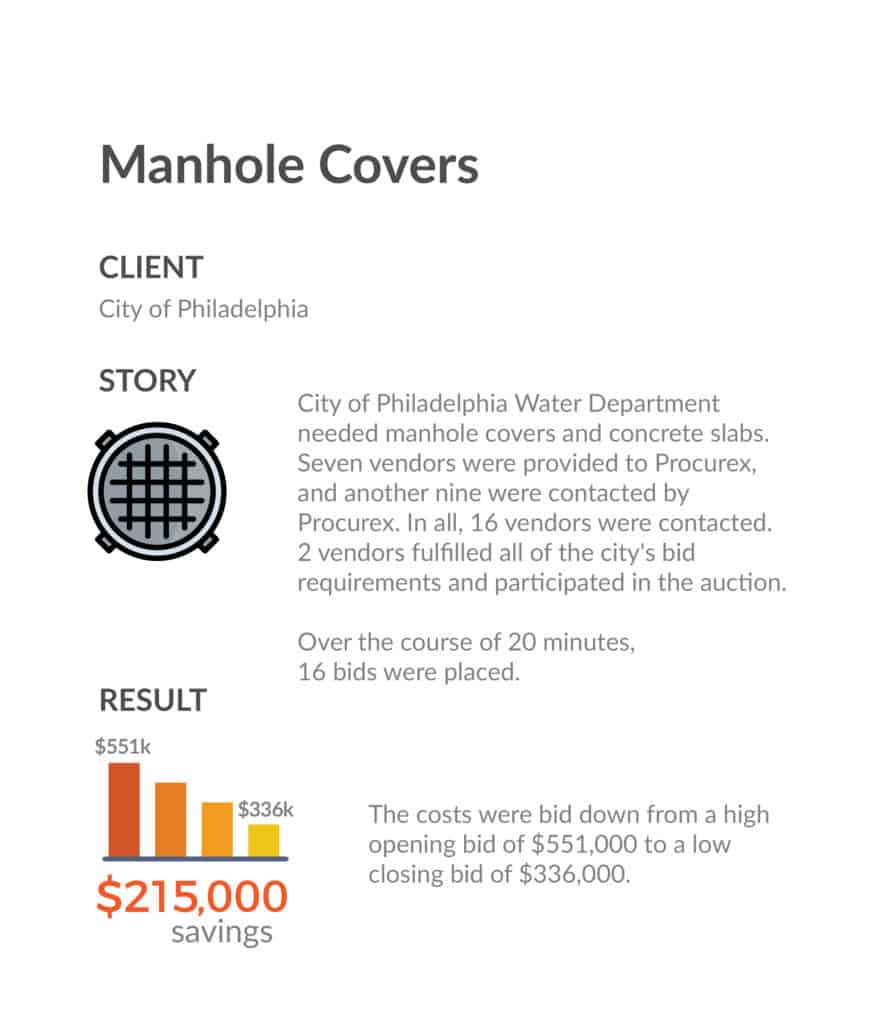
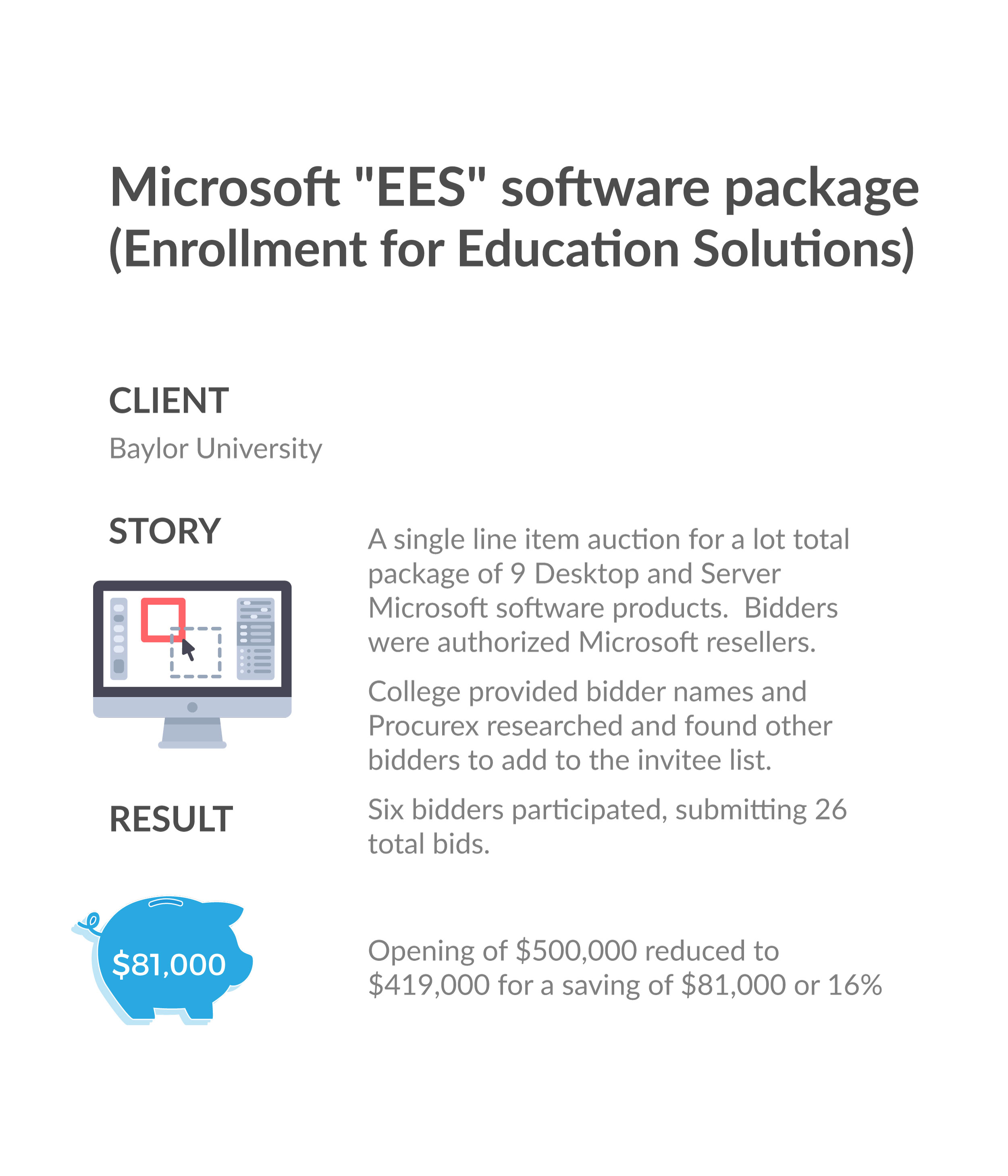






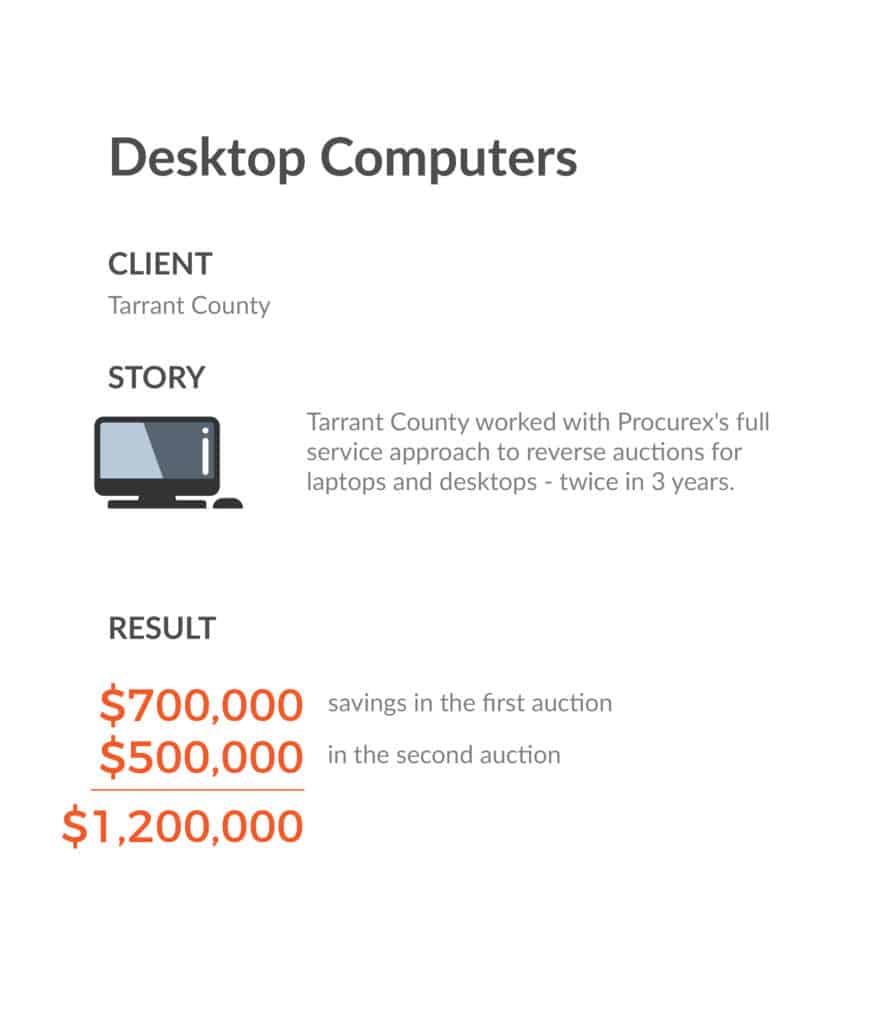





 Procurex interviewed IT and research stakeholders to help define a set of minimum performance requirements for the auction specification.
Procurex interviewed IT and research stakeholders to help define a set of minimum performance requirements for the auction specification.




